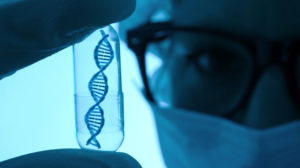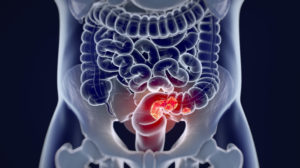A new study shows the link between longevity, maternal age, and leukocyte telomere length. Read on to learn about these exciting new findings.
RELATED: Epigenetics And Aging: How Some People Are Able To Age Better
In this article:
- Telomere Length and Lifespan
- New Study: Maternal Age and Leukocyte Telomere Length
- Other Epigenetic Applications
New Study Alert: The Association Between Maternal Age, Leukocyte Telomere Length, and Lifespan Longevity
Telomere Length and Lifespan
Telomeres are structures found at the end of chromosomes. They are made up of DNA sequences and proteins.
They serve as protective structures for chromosomes, so they help maintain genomic stability. On top of that, they also play a role in cell division.
At a certain point, when telomere length becomes too short, they no longer enter into cell division. This leads to tissue aging.
Epidemiological studies show that telomere length is linked to a variety of chronic illnesses. Shorter telomere length is linked to the following diseases:
- Type 2 diabetes
- Cardiovascular diseases
- Neurological conditions
- Certain cancers
Unfortunately, telomeres shorten with age. On top of that, scientists believe that the rate of telomere shortening is indicative of the pace of aging. That’s why telomere length is seen as a biomarker for healthspan and longevity.
RELATED: What Causes Aging? The Science of Aging
New Study: Maternal Age and Leukocyte Telomere Length
A small study published in 2017 shows a preliminary association between leukocyte telomere length and women’s maternal age.
What are leukocytes? It’s a type of cell that is made in the bone marrow. Scientists also refer to it as white blood cells. It plays a role in the body’s immune function.
In their study with 387 women, those who give birth to their last child past the age of 33 were more likely to have longer leukocyte telomere length. The researchers of the study suggest that extended maternal childbirth age may contribute to longevity.
A larger-scale study was recently published in the journal Menopause to verify these initial findings. The study’s main objective was to determine if leukocyte telomere length is related to a woman’s latest childbirth age.
In this more extensive study, the researchers ran a cross-sectional analysis of data from 1,232 women. These women were peri- and postmenopausal and were at least 40 years old.
Using the National Health and Nutrition Examination Survey, the researchers looked at the following variables:
- Woman’s age during their last live birth
- Leukocyte telomere length
The researchers also adjusted for other variables that affect health, such as age, number of live births, race/ethnicity, and history of hysterectomy/oophorectomy. Even after taking these variables into consideration, there was still a significant and positive relationship between the woman’s last childbirth age and telomere length.
Just like in the first smaller study, women who gave birth later in their life were more likely to have longer telomeres. However, this pattern wasn’t seen in all women who gave birth at a later age.
The data analysis shows that these findings may only apply to two groups of women:
- Women who had one or two live births.
- Women who were taking oral contraceptives.
These studies give scientists some preliminary insight into the possible relationship between the healthspan and reproductive history. But more studies are needed to confirm the causal relationship between the two variables.
They need more data to establish that the last childbirth age does affect telomere length. It’s possible that telomere length may contribute to a woman’s ability to give birth at a more advanced age (and not the other way around).
Other Epigenetic Applications
Telomere length is just one of the biomarkers for long-term health. As researchers learn more about the field of epigenetics, they are able to identify more epigenetic biomarkers that can help people make better decisions about their health.
Another epigenetic biomarker is DNA methylation. With a simple blood test, doctors can now measure the level of DNA methylation across different sites on the genome to determine your biological age and make health predictions.
The field of epigenetics has a lot to offer when it comes to healthspan optimization. If you’re interested in learning more about this, visit the TruDiagnostic website today.
Do you think a woman’s childbirth age affects her healthspan? Please share your thoughts with us in the comments section below.
Source:
Up Next:





